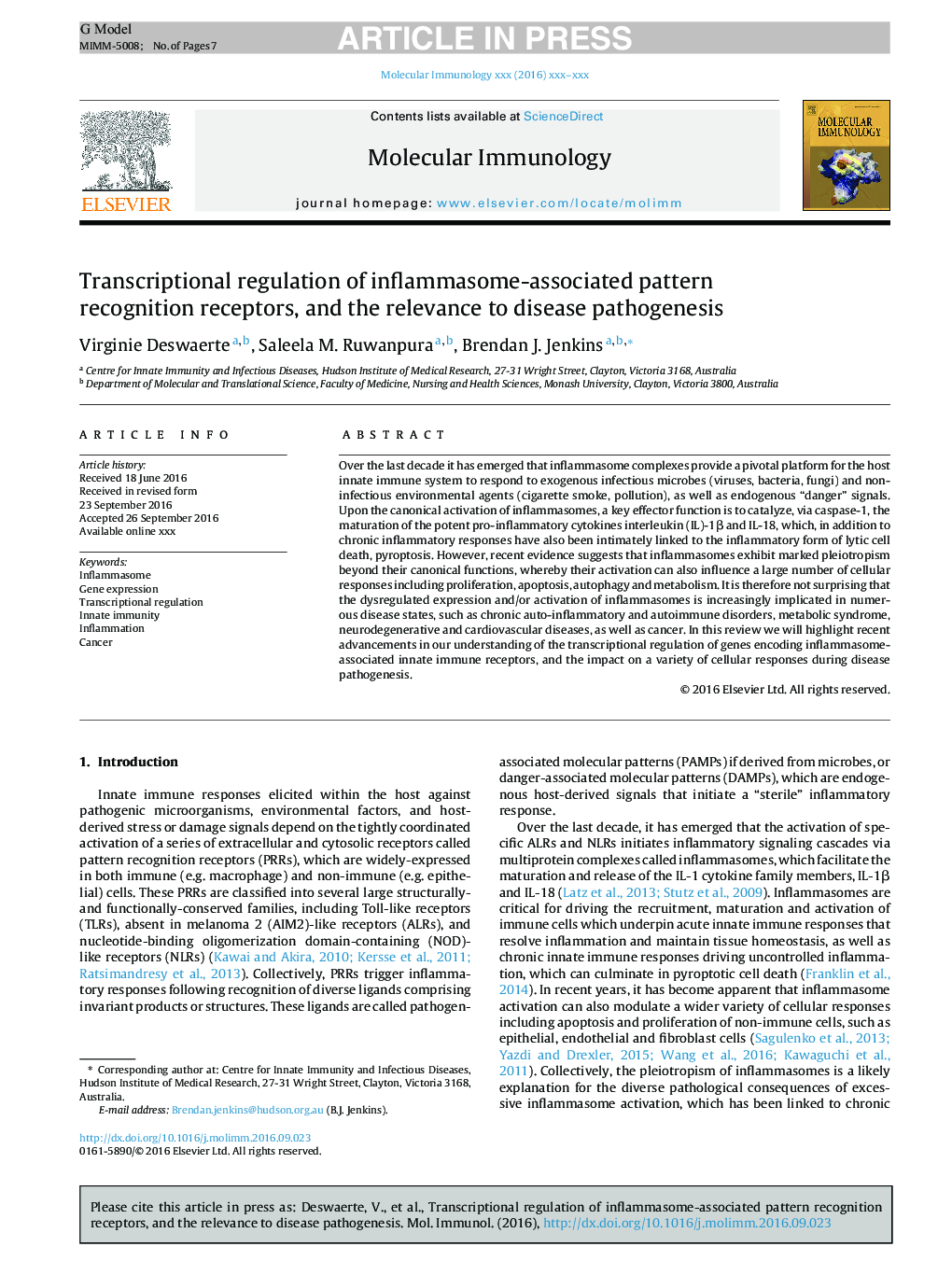| Article ID | Journal | Published Year | Pages | File Type |
|---|---|---|---|---|
| 5592166 | Molecular Immunology | 2017 | 7 Pages |
Abstract
Over the last decade it has emerged that inflammasome complexes provide a pivotal platform for the host innate immune system to respond to exogenous infectious microbes (viruses, bacteria, fungi) and non-infectious environmental agents (cigarette smoke, pollution), as well as endogenous “danger” signals. Upon the canonical activation of inflammasomes, a key effector function is to catalyze, via caspase-1, the maturation of the potent pro-inflammatory cytokines interleukin (IL)-1β and IL-18, which, in addition to chronic inflammatory responses have also been intimately linked to the inflammatory form of lytic cell death, pyroptosis. However, recent evidence suggests that inflammasomes exhibit marked pleiotropism beyond their canonical functions, whereby their activation can also influence a large number of cellular responses including proliferation, apoptosis, autophagy and metabolism. It is therefore not surprising that the dysregulated expression and/or activation of inflammasomes is increasingly implicated in numerous disease states, such as chronic auto-inflammatory and autoimmune disorders, metabolic syndrome, neurodegenerative and cardiovascular diseases, as well as cancer. In this review we will highlight recent advancements in our understanding of the transcriptional regulation of genes encoding inflammasome-associated innate immune receptors, and the impact on a variety of cellular responses during disease pathogenesis.
Related Topics
Life Sciences
Biochemistry, Genetics and Molecular Biology
Molecular Biology
Authors
Virginie Deswaerte, Saleela M. Ruwanpura, Brendan J. Jenkins,
